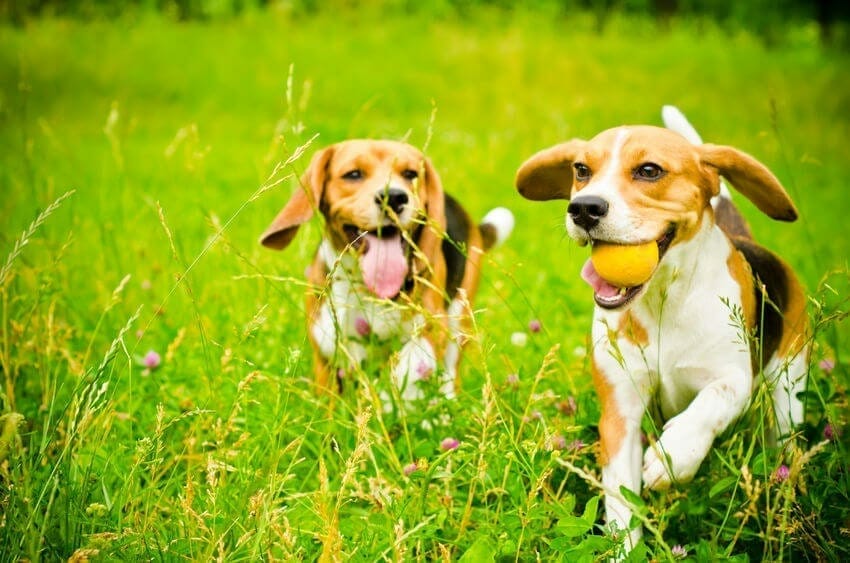THE PERFECT MATCH – DOG #2
PIA Australia
March 22, 2017
Two peas in a pod? Or double trouble? Need some advice on how to best prepare for doggy number two? Want to know if your dog is ready for a friend? We take a look at this important step with expert tips from leading behaviourist, Dr Andrew O’Shea.
There is no denying that having two dogs is a wonderful experience. Doubling the canine love in your home can be lovely for both you. However, more often than not, it can work the other way. So how can you be sure that your dog is ready for a playmate?
First, it’s good to understand how the pack family works. Remember that your dog looks at you as their pack or family group. In the wild, there would be mum and dad, and possibly a few adult females alongside some pups. However, when the pups grow up, they leave the family group and set up their own family packs or groups.
So when deciding whether to add another furry member to your family group, it is critical to examine your reasons why. This will ultimately set you up for success. Honesty is the best policy, and for the sake of your current dog, it is important not to rush into this. It’s all about personality matching, and this takes time and patience.
Loneliness & Bad Behaviour
Leading Veterinary Behaviourist, Dr O’Shea understands that people often seek out an additional dog when they suspect that their current dog is lonely. However, he is quick to point out that sometimes when dogs seem lonely, it is because they long for human companionship and not necessarily that of another dog.
“All dogs are individuals, and the reality is that some dogs like living with other dogs and some dogs don’t,” he says. “When we ask our dogs to live together, sometimes we select a companion that they get along with, but sometimes we pick dogs that don’t necessarily like each other.”
Many pet owners also seek the possibility of another dog to help solve their current dog’s behavioural problems. It is advisable, in this instance, to speak with your vet, behaviourist or dog trainer, as often another dog could make matters worse, leaving you with two destructive dogs instead of just one (cue the pillow fluff).
“Quite often getting another dog can intensify some dog problems,” Dr O’Shea warns. “If the first dog is struggling with an anxiety disorder, and you get a sweet calm dog, that may help the first dog. However, if the second dog is not making the world a more predictable and settled place, the second dog might cause even more issues.”
Is My Dog Ready?
The key when deciding on a second dog is research. Time is also of essence. It is highly recommended that you do not rush out and get a second dog without taking the time to research and understand exactly what type of personality you require of your pup to make a perfect match.
If you are buying from a breeder or shelter, ensure you ask as many questions as possible and have an honest description of your current dog. Are they boisterous or submissive? Do they like strange dogs? The more information you have about the dog you are bringing into the household, the better chance you have of making a good match. Some shelters can even offer ‘playdates’ so you can see if your dogs will get along.
“You need to make sure the dog you currently have, is happy and healthy, well-balanced and coping well before you consider introducing a second dog,” Dr O’Shea recommends. “I would try to ensure the dog I purchase is likely to complement the dog that I have.”
Making a choice alongside your existing dog is the most important aspect when considering introducing a puppy or older dog. Taking time during this important stage will best prepare you, your dog and the new pup to live in canine happiness. WOOF!
Our Expert:
Andrew O’Shea BVSc MANZCVS (Veterinary Behaviour) CMAVA
Veterinary Behaviourist Dr O’Shea is the owner of Camden Valley Animal Hospital in Sydney and well known as an expert in animal behaviour. In July 2013 he established the animal behaviour service at the University of Sydney Veterinary Teaching Hospital. Dr O’Shea is the proud owner of two German Shorthair Pointers, one Burmese and a very talkative Cockatoo.

8 Comment